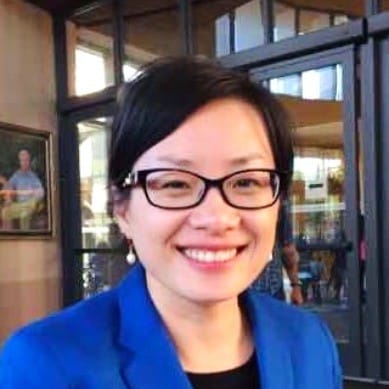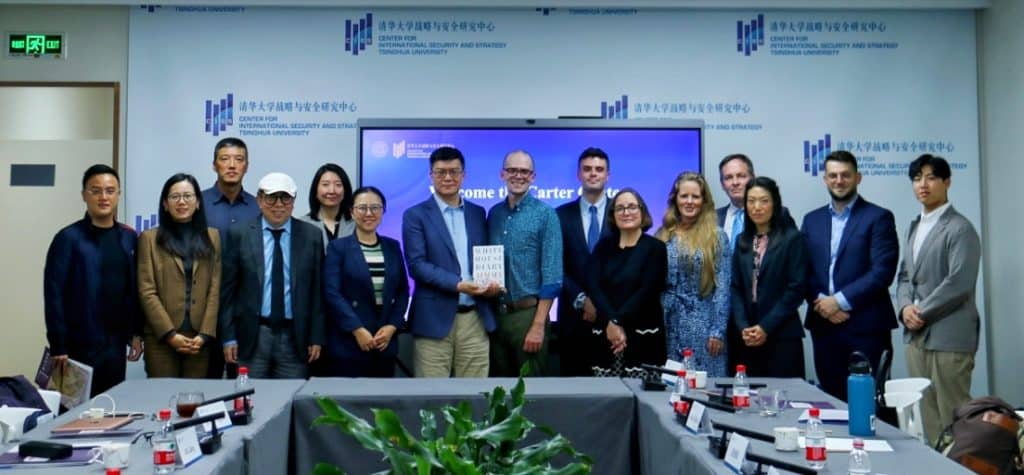Da Wei on the U.S. Election and U.S.-China Relations
- Analysis
 Juan Zhang
Juan Zhang- 11/04/2024
- 0

Da Wei, professor and director of the Center for International Security and Strategy at China’s Tsinghua University, recently gave an in-depth interview with China Review News (中评社) in Beijing, discussing U.S.-China strategic competition, the U.S. election, the Taiwan issue, and more. Here is a translated summary of the key points from his interview.
Harris or Trump: Which Choice is More China-Friendly?
Da Wei observed that if Harris wins, “the ‘uncomfortable coexistence’ between the United States and China may not be as challenging as under the Biden administration.” He pointed out that currently, U.S.-China relations are indeed a form of uncomfortable coexistence, albeit slightly improved compared to Biden’s first two years, as both nations have been working toward stabilization following the San Francisco summit, with various dialogue mechanisms and cultural exchanges progressing toward normalcy. However, tariffs remain in place, technological restrictions on China persist, and the United States still sees China as a strategic competitor. “This tension will likely continue as a constant,” said Da Wei as he underscored the importance of coexistence.
If Harris wins, Da Wei believes that “a similar status quo may persist, offering a four-year window for both sides to gradually adapt.” Establishing a habit of coexistence could have significant implications for the bilateral relationship.
On the other hand, Da Wei thinks “a Trump victory would bring more challenges.” He continued, “Trump is often regarded as a transactional leader, but it’s unclear what he might want from China.” Additionally, he said that Trump’s administration likely consists of hardliners toward China, which is cause for concern. Potential policies under Trump may include imposing high tariffs, restricting Chinese visas, and even reigniting the origins of COVID-19, all of which could have severely adverse impacts. “If he implements even a few of these policies, bilateral relations could be destabilized, and the existing dialogue mechanisms between the United States and China might be paused. Consequently, U.S.-China relations could descend into freefall,” said Da Wei.
He continued: “Some argue that Harris and Trump are equally unfavorable toward China, but I disagree.” Da Wei explained a substantial difference on China policy between Harris and Trump: one approach may be more stable, while the other risks introducing new shocks.
China's Response to a Future U.S. Administration
Da Wei suggests a two-step response. First, China should observe developments carefully and prioritize stability in U.S.-China relations during the transition period, as neither side wants a crisis to unfold on the new administration’s first day. Second, regardless of the winner, Chinese leaders should establish immediate communication with the new administration. If Trump wins, China should still attempt to stabilize relations. If needed, China should respond firmly but could also explore bolder diplomatic approaches, such as embracing unilateral openness and enhancing ties with other nations, even if the United States moves toward “decoupling.” Strengthening ties with middle-ground nations could counterbalance the U.S.-led push for decoupling. Da Wei also advises China to approach international issues independently, steering clear of reactionary positions based on U.S. actions and avoiding zero-sum logic.
On Taiwan
Da Wei expressed concern over the heightened risks in cross-strait relations, particularly if Lai Ching-te’s administration in Taiwan takes a pro-independence stance and creates crises to mobilize support ahead of re-election. This occurred in 2004 under Chen Shui-bian, though the situation differs since U.S.-China relations were relatively stable then. At that time, both the United States and China worked to constrain pro-independence forces in Taiwan. Da Wei noted that today the United States may underestimate the risks posed by Lai’s administration and lacks leverage over him. Lai’s attitude may be more confrontational, making crisis control difficult for the U.S.
On the Trajectory of U.S.-China Relations
Da Wei believes that “deeply rooted structural issues between the United States and China are unlikely to be resolved in the short term…Over the past decade, mutual dissatisfaction has accumulated, compounded by three years of pandemic-induced isolation, which has exacerbated misperceptions and anger on both sides.” Da Wei suggests that both countries could benefit from a reality-based approach, reassessing each other’s perceived threats. A less emotional, more measured evaluation might allow the tension to decrease.
Da Wei is also skeptical of the notion that China intends to dismantle the current international order. He argues that “China has no such capability or intent, given that it has largely benefited from the post-Cold War order.” Da Wei noted that The United States, however, appears overly anxious about China’s intentions, a common response for any hegemon facing a rising power.
Juan Zhang is a senior writer for the U.S.-China Perception Monitor and managing editor for 中美印象 (The Monitor’s Chinese language website).
The views expressed in this article represent those of the author(s) and not those of The Carter Center.







